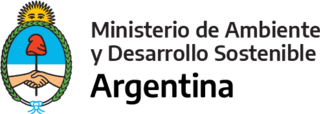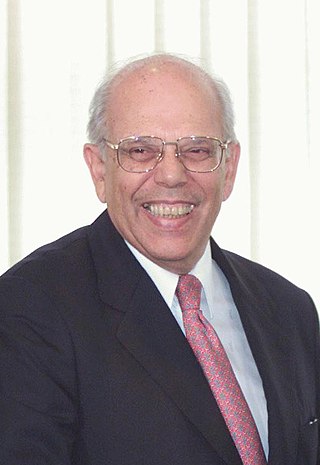Related Research Articles

This article deals with the diplomatic affairs, foreign policy and international relations of Uruguay. At the political level, these matters are officially handled by the Ministry of Foreign Relations, also known as Cancillería, which answers to the President.

Brujas F.C. was a Costa Rican football club, based in Desamparados, Costa Rica.

Escazú is the second canton in the province of San José in Costa Rica.

The pulp mill dispute was a dispute between Argentina and Uruguay concerning the construction of pulp mills on the Uruguay River. The presidents at the time were Néstor Kirchner (Argentina) and Tabaré Vázquez (Uruguay). As a diplomatic, economic, and public relations conflict between both parties, the dispute also affected tourism and transportation as well as the otherwise amicable relations between the two countries. The feud was unprecedented between the two countries, which have shared historical and cultural ties.

The Ministry of Foreign Affairs, European Union and Cooperation (MAEUEC) is a department of the Government of Spain in charge of planning, managing, carrying out and evaluating the country's foreign and international cooperation for development policies, paying special attention to the ones in relation to the European Union and Ibero-America, as well as coordinating and supervising all actions done in this areas by the other Ministries and Public Administrations. Likewise, it is responsible for promoting international economic, cultural and scientific relationships, taking part in the proposal and application of the migration policy, promoting cross-border and interterritorial cooperation, protecting Spaniards abroad and preparing, negotiating and processing the international treaties which Spain is part of.

The Ministry of Environment, was a Cabinet-level ministry of Government of Pakistan, tasked and primarily responsible for planning, coordinating, promoting, protecting and overseeing the policy implementation of government sanctioned environmental and forestry programmes in the country. Its government activities included conservation, survey of fauna, flora, forestry, wildlife ; protection and prevention of pollution control, afforestation, and land degradation mitigation. The MoE was also responsible for administrating and establishing the National Parks of Pakistan.

The Ministry of Foreign Affairs, also known as MINREX, is the Cuban government ministry which oversees the foreign relations for defense of Cuba as the socialist homeland. It was established on December 23, 1959, instead of the Ministry of State to confront the hostile offensive of the United States.
The National Institute of Renewable Natural Resources and Environment, also known as INDERENA, was a Colombian environmental government agency established in 1968 to implement environmental policy and promote green development in Colombia. INDERENA was successful in helping create the environment in government and the acceptance in society to move environmental protection into the national agenda, this led to the creation of child agencies like the National Natural Parks System, and the eventual evolution into the Ministry of Environment in 1993.
The Uruguayan savanna ecoregion used to be covered by grasslands, palm savannas, and gallery forests along the Uruguay, Negro, Yaguarí, Queguay, and Tacuarembó rivers. Unfortunately, agriculture and cattle ranching have heavily altered these natural communities. The savannas are critically endangered because there are few small isolated patches of intact habitat remaining. The whole ecoregion has been severely altered by cattle ranching, one of the main pillars of the national economy in Uruguay. About 80% of Uruguayan territory is used for cattle ranching on natural and artificial savannas.

Cuba–Uruguay relations refers to the diplomatic relations between the Republic of Cuba and the Oriental Republic of Uruguay. Both nations are members of the Community of Latin American and Caribbean States, Group of 77, Organization of Ibero-American States and the United Nations.

The Ministry of Housing and Territorial Planning is the Uruguayan government ministry which oversees the housing policies and territorial planning of Uruguay.

The Ministry of Foreign Relations is the ministry of the Government of Uruguay that is responsible for planning, directing and executing the foreign policy and international relations of the Republic.
The system of orders, decorations and medals of Uruguay consists of both military and civilian honours presented by the authorities of Uruguay with the purpose of recognising and rewarding actions or services considered praiseworthy.

The Ministry of Health of Argentina is a ministry of the national executive power that oversees, elaborates and coordinates the Argentine national state's public health policy. The ministry is responsible for overseeing Argentina's highly decentralized universal health care system, which according to 2000 figures, serviced over half of the country's population.

Diplomatic relations exist between Azerbaijan and Uruguay. Neither country has a resident ambassador.

The Ministry of the Environment and Sustainable Development of Argentina is a ministry of the national executive power that oversees the government's policy on environmental issues and promotes sustainable development.

Julio Daniel Salinas Grecco is a Uruguayan neurologist and politician of Open Cabildo (CA), who served as Minister of Public Health of Uruguay from 1 March 2020 to 13 March 2023.

The Regional Agreement on Access to Information, Public Participation and Justice in Environmental Matters in Latin America and the Caribbean, better known as the Escazú Agreement, is an international treaty signed by 25 Latin American and Caribbean nations concerning the rights of access to information about the environment, public participation in environmental decision-making, environmental justice, and a healthy and sustainable environment for current and future generations. The agreement is open to 33 countries in Latin America and the Caribbean. Of the 25 signatories, it has been ratified by fifteen: Antigua and Barbuda, Argentina, Belize, Bolivia, Chile,Ecuador, Grenada, Guyana, Mexico, Nicaragua, Panama, Saint Vincent and the Grenadines, Saint Kitts and Nevis, Saint Lucia, and Uruguay.

The presidency of Jorge Batlle began on 1 March 2000 when he was inaugurated as the 38th president of Uruguay. Batlle, member of Colorado Party, took office following his victory over the Broad Front Party nominee Tabaré Vázquez in the second round of the 1999 general election, where his party joined to defeat Broad Front that was the winning party in the first round.

María Susana Muhamad González is a Colombian political scientist, environmentalist and politician belonging to the Colombia Humana party. Since August 7, 2022, she has held the position of Minister of Environment and Sustainable Development of her country, in the government of Gustavo Petro.
References
- ↑ "Declaración sobre entrada en vigor del Acuerdo de Escazú en materia ambiental". Institución Nacional de Derechos Humanos y Defensoría del Pueblo (in Spanish). Retrieved 2021-04-27.